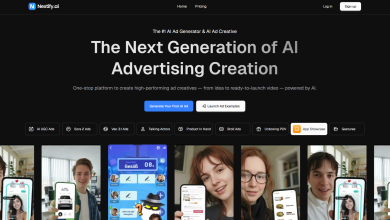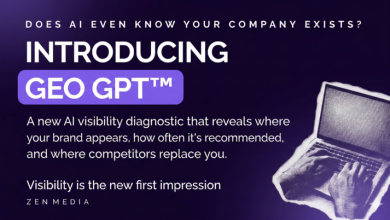
Artificial Intelligence (AI) has moved far beyond the realm of futuristic speculation and is now quietly reshaping healthcare from the inside out. Without grand announcements, AI is becoming an indispensable partner to clinicians and healthcare systems enhancing workflows, easing administrative burdens, and ultimately supporting better, more timely care for patients.
The Power Of Streamlining Clinical Documentation for Patient-Centric Care
One of the most immediate benefits AI offers is the transformation of clinical documentation. Physicians often find themselves overwhelmed by the administrative tasks of typing notes, entering data, and navigating complex electronic health record (EHR) systems. AI-powered tools now help transcribe patient encounters in real time, automatically generate structured medical notes, and even summarize prior patient histories.
This not only saves precious time but also improves accuracy and consistency in documentation. Doctors report feeling more present during consultations and less mentally exhausted by the end of their shifts. Far from replacing the physician’s expertise, AI liberates clinicians to focus on what truly matters: care towards the patients.
Gearing Up Real-Time Clinical Decision-Making
Healthcare decisions often unfold in high-pressure moments where every second counts. AI systems are proving invaluable in analyzing complex data streams to reveal patterns invisible to the human eye. For example, AI-driven triage algorithms in emergency departments rapidly assess patient severity, helping ensure that critical cases receive immediate attention while optimizing resource allocation.
In intensive care units (ICU’s), continuous monitoring powered by AI can detect early signs of patient deterioration such as subtle changes in vital signs or lab trends and alert clinicians before conditions worsen. This proactive approach has been shown to reduce complications, shorten hospital stays, and improve survival rates.
Advancing Diagnostic Precision with AI Assistance
Diagnosing complex or rare conditions often requires synthesizing vast amounts of data. AI’s capacity to analyze extensive datasets including medical imaging, laboratory results, and genetic profiles helps clinicians narrow down differential diagnoses more efficiently.
A striking example lies in breast cancer detection. AI algorithms trained on millions of mammogram images can identify suspicious lesions with sensitivity comparable to, and sometimes surpassing, expert radiologists. These systems highlight areas warranting closer inspection, reducing oversight and enabling earlier intervention. Importantly, AI serves as a second set of eyes, augmenting clinical expertise rather than replacing it.
Similarly, in pathology, AI aids in analyzing biopsy samples, detecting cellular abnormalities, and providing quantitative assessments that enhance diagnostic confidence and consistency.
Expanding Care Beyond Hospital Walls with Remote Monitoring
AI is redefining the boundaries of healthcare by enabling continuous, remote patient monitoring. Wearable devices and smart sensors collect real-time health data such as heart rate, glucose levels, or respiratory patterns which AI algorithms analyze to detect concerning trends.
For patients managing chronic illnesses like diabetes or heart failure, this means issues can be spotted early, prompting timely clinical intervention without the need for frequent office visits. Postoperative patients recovering at home benefit from this constant vigilance as well, reducing readmissions and improving outcomes through seamless connectivity between patients and providers.
Optimizing Healthcare Operations for Efficiency and Patient Experience
Behind the scenes, healthcare systems are leveraging AI to optimize logistics and operations. Predictive models forecast patient admissions and discharges, enabling better bed management. Staff scheduling algorithms ensure appropriate coverage, while inventory management systems prevent shortages or waste.
These efficiencies translate directly into better patient experiences, shorter wait times, smoother transitions between care settings, and more personalized attention. In resource-constrained environments, AI-driven operational intelligence ensures that every minute and every asset is used to their fullest potential.
Building Trust through Responsible AI Integration
Despite its transformative potential, AI’s role in healthcare demands thoughtful and ethical implementation. Transparency in how AI systems make recommendations, strict adherence to data privacy standards, and continuous clinician oversight are vital.
The most effective AI tools are those that quietly work in the background, augmenting human judgment without supplanting it. Ongoing validation and refinement ensure these systems remain accurate, equitable, and aligned with evolving clinical guidelines.
Clinicians must retain ultimate control AI should empower rather than command decisions, fostering a collaborative relationship between human insight and machine intelligence.
Conclusion
AI’s integration into healthcare is more than just a technological advancement; it’s a profound opportunity to reshape how we care for one another. By shouldering administrative burdens, enhancing diagnostic accuracy, and enabling continuous, personalized care, AI empowers healthcare professionals to reclaim the time and focus that patients deserve.
But technology alone is not enough. The true promise of AI lies in its ability to amplify human compassion, judgment, and connection. As we embrace these tools, we must remain committed to thoughtful, ethical implementation that prioritizes trust, transparency, and patient-centered values.
In this partnership between humans and machines, healthcare can become more precise, more efficient, and most importantly, more humane. The future of medicine is not about replacing caregivers, it’s about empowering them to deliver better care, every day, for every patient.
Together, we can build a healthcare system where technology supports healing, hope, and human dignity at its core.





